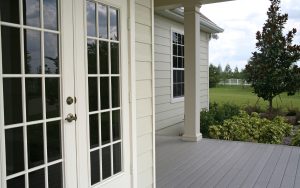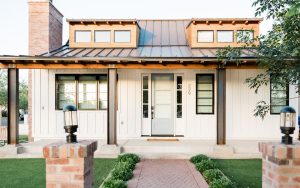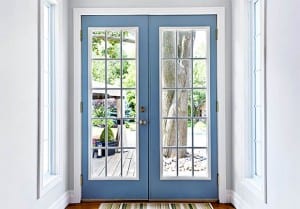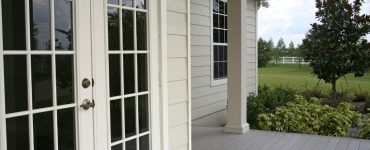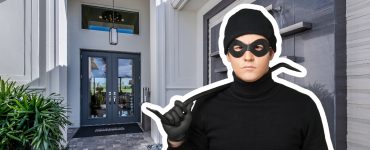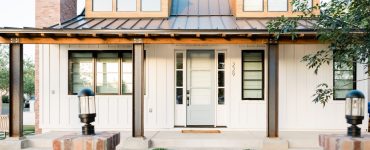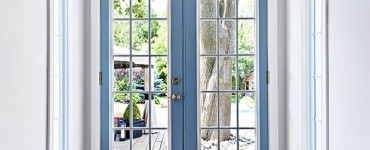When it comes to choosing the right doors for your home, there are plenty of options to consider. Among the most popular choices are French doors and sliding doors, each bringing its own unique set of advantages and features to enhance your living space. These two styles have long been favored for their ability to add charm, functionality, and aesthetic appeal to both interior and exterior areas of a house.
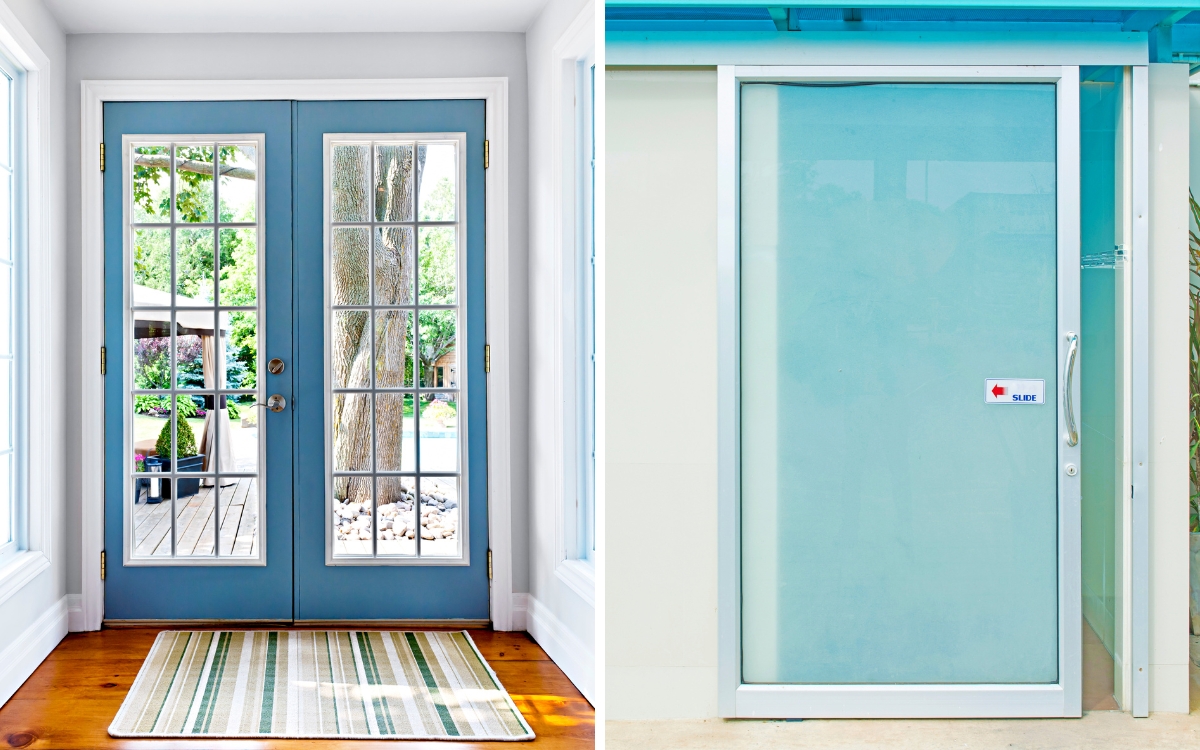
In this blog post, we’ll conduct a comprehensive comparison of French doors and sliding doors, exploring their respective strengths and potential drawbacks. By delving into the key characteristics of each door type, we aim to help you make an informed decision and select the ideal fit for your home.
Head to Head Comparison: French Doors
Definition and Features of French Doors
French doors are elegant and timeless double doors that feature multiple glass panels set within a wooden or metal frame. These doors typically swing open from the center and are hinged on the sides, offering a wide and inviting entryway. The glass panels allow an abundance of natural light to flood the room and provide picturesque views of the surrounding landscape. French doors can be customized with various glass types, including clear, frosted, or textured options, adding a touch of sophistication and charm to any home.
Advantages of French Doors
Enhanced Aesthetics and Classic Charm
One of the most significant advantages of French doors is their undeniable charm and beauty. The traditional design, coupled with the elegance of the glass panels, creates a striking focal point that adds character to any space. Whether installed as an entryway to the patio, garden, or between interior rooms, French doors elevate the overall aesthetics of the home, making it a timeless architectural feature.
Abundance of Natural Light and Scenic Views
The large glass panels in French doors allow copious amounts of natural light to enter the room, brightening up the interior and creating a warm and welcoming ambiance. Additionally, they offer unobstructed views of the outdoors, allowing homeowners to enjoy the beauty of their surroundings from the comfort of their home.
Improved Ventilation and Airflow
French doors swing open widely, allowing for excellent ventilation and airflow between indoor and outdoor spaces. During pleasant weather, homeowners can open both doors, facilitating cross-ventilation and keeping the interior fresh and well-ventilated.
Considerations for French Doors
Space Requirements and Swing Direction
One essential consideration when opting for French doors is the space they require to swing open fully. This swing space needs to be clear and unobstructed, ensuring that the doors do not collide with furniture or other objects. It may not be suitable for areas with limited space or tight corners.
Energy Efficiency and Insulation
Due to their glass panels, French doors can be less energy-efficient compared to solid doors. However, choosing energy-efficient glass and properly insulating the door frame can help mitigate heat loss during colder months and prevent excess heat gain in the summer.
Security and Privacy Concerns
The glass panels on French doors can be a potential security risk, as they offer a clear view of the interior, making it easier for outsiders to see inside the home. Homeowners should consider using frosted or tinted glass options for enhanced privacy or complementing the doors with additional window treatments.
Head to Head Comparison: Sliding Doors
Definition and Features of Sliding Doors
Sliding doors, also known as patio doors or gliding doors, are a contemporary and space-saving option for home entryways. They consist of two or more large glass panels that slide horizontally on tracks, allowing for smooth and effortless operation. The modern design of sliding doors complements various architectural styles, and they are especially popular in homes with limited space or those seeking a seamless indoor-outdoor connection.
Advantages of Sliding Doors
Modern and Sleek Design
Sliding doors exude a sleek and modern aesthetic, adding a touch of sophistication to any home. The expansive glass panels create an uninterrupted view of the outdoor surroundings, enhancing the sense of openness and spaciousness in the interior.
Space-Saving Benefits
Unlike French doors that swing open, sliding doors operate horizontally along tracks, requiring minimal floor space. This feature is ideal for areas with limited room, as it allows homeowners to maximize their living space while still enjoying the benefits of a large glass entryway.
Seamless Indoor-Outdoor Connection
Sliding doors are perfect for homeowners who desire a seamless transition between their indoor and outdoor living spaces. When the doors are open, they create a harmonious flow between the interior and the patio or garden, making it easy to enjoy outdoor activities and entertain guests.
Considerations for Sliding Doors
Limited Ventilation Options
While sliding doors provide ample natural light, they may offer limited ventilation compared to French doors. Typically, only one panel slides open, restricting the airflow into the room. To address this, homeowners can opt for sliding doors with screens or combine them with other windows to enhance ventilation.
Maintenance and Repairs
Sliding doors rely on tracks and rollers for smooth operation, and over time, dust, debris, or wear can affect their performance. Regular maintenance is necessary to keep the doors functioning optimally. Additionally, if the tracks or rollers become damaged, repairs may be required to ensure smooth sliding.
Security and Weatherproofing
Security is a significant consideration for sliding doors, as they are vulnerable to forced entry if not adequately secured. Homeowners should invest in high-quality locks and security features to ensure the safety of their home. Moreover, the tightness of the seal between the sliding panels can impact weatherproofing, so selecting doors with good insulation is crucial for energy efficiency.
Factors to Consider in Making Your Decision
Architectural Style and Home Design
The architectural style of your home plays a crucial role in determining which type of door will best complement its overall design. French doors, with their classic and elegant appearance, are well-suited for traditional, vintage, and historically-inspired homes. They add a touch of sophistication and charm that can enhance the character of older properties. On the other hand, sliding doors’ modern and sleek design is an excellent match for contemporary, minimalist, and modern-style homes. They create a seamless integration between indoor and outdoor spaces, making them a preferred choice for houses with a more contemporary flair.
Available Space and Layout of the Area
The amount of available space and the layout of the area where the doors will be installed is a critical factor in making your decision. French doors require enough clearance to swing open fully, so if you have limited space or furniture placed close to the entryway, they might not be the most practical option. Sliding doors, on the other hand, slide horizontally along tracks and don’t require additional clearance, making them an excellent space-saving choice for areas with restricted room.
Personal Lifestyle and Functional Needs
Consider how you intend to use the doors and how they will fit into your lifestyle. If you enjoy entertaining and hosting gatherings that spill out into your backyard or patio, French doors’ wide opening and enhanced ventilation might be more appealing. They offer a sense of grandeur and make a statement, making them a desirable choice for those who value aesthetics and ambiance. On the contrary, if you have a busy household with children or pets constantly moving in and out, sliding doors’ easy operation and durability may be more practical and convenient.
Energy Efficiency and Sustainability
Both French doors and sliding doors come with varying energy efficiency features. French doors with large glass panels can allow heat to escape during colder months, leading to higher energy bills. However, investing in energy-efficient glass and proper insulation can help mitigate this issue.
Sliding doors with their expansive glass may also pose energy efficiency challenges, but modern designs often come with improved insulation and energy-saving features. Homeowners should consider the climate and weather conditions in their area and look for doors with Energy Star ratings to ensure optimal energy efficiency and reduce their carbon footprint.
Cost Comparison: French Doors vs. Sliding Doors
Initial Investment and Installation Costs
When it comes to the initial investment and installation costs, French doors are generally more expensive than sliding doors. French doors’ classic charm and intricate design often require skilled craftsmanship and high-quality materials, which can contribute to a higher price tag.
Additionally, the larger glass panels used in French doors can also increase their cost, especially if specialized or energy-efficient glass is chosen. Homeowners should consider the size of the opening where the doors will be installed, as larger doors will naturally incur higher costs.
On the other hand, sliding doors are typically more budget-friendly in terms of initial investment and installation. Their straightforward design and ease of manufacturing contribute to their lower price point. Sliding doors come in various standard sizes, making them more cost-effective for standard doorways. However, if you opt for custom sizes or premium features such as impact-resistant glass or multi-point locking systems, the cost may increase.
Long-Term Maintenance and Energy Efficiency Costs
While the initial costs are essential to consider, it’s also crucial to factor in the long-term maintenance and energy efficiency costs associated with both types of doors. French doors with their large glass panels may require more frequent cleaning to keep the glass surfaces sparkling and clear. Additionally, homeowners should inspect the door frame regularly for any signs of wear, especially if the doors are exposed to harsh weather conditions.
In terms of energy efficiency, both French doors and sliding doors can pose challenges. French doors with their glass panels can allow heat to escape during colder months, leading to higher heating bills. However, investing in energy-efficient glass and ensuring proper weather-stripping and insulation can help improve their energy performance.
Sliding doors, with their expansive glass, can also present energy efficiency concerns. Modern sliding doors often come with improved insulation features, such as thermal breaks and low-emissivity (Low-E) coatings, which help to minimize heat transfer and improve overall energy efficiency.
Return on Investment and Property Value
Both French doors and sliding doors can positively impact a home’s value and market appeal. French doors, with their classic and elegant appearance, can enhance the overall aesthetics and charm of a property, potentially increasing its curb appeal and resale value. Potential buyers often appreciate the timeless appeal of French doors, which can translate into a higher perceived value for the property.
Similarly, sliding doors, with their modern and seamless design, appeal to buyers seeking a contemporary and open living space. The indoor-outdoor connection that sliding doors offer can be a strong selling point for homes, especially in areas with beautiful views or pleasant outdoor environments.
Conclusion
In the debate of French doors vs. sliding doors, there’s no definitive answer as to which is the absolute best choice for every home. The decision ultimately depends on your specific needs, preferences, and the unique characteristics of your living space. French doors offer timeless elegance, allowing a flood of natural light and picturesque views, while sliding doors boast a contemporary appeal and space-saving benefits, facilitating a seamless transition between indoors and outdoors.


